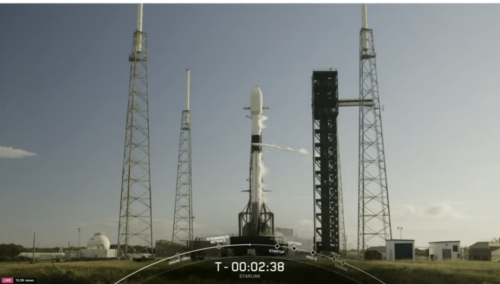On Sunday, November 3, at the launch site of Cape Canaveral Space Force Station in Florida, the SpaceX Falcon 9 rocket was scheduled to launch at 4:57 p.m. ET. However, the mission was called to a halt just over two minutes before liftoff. At T-00:02:38, a SpaceX team member announced, “Hold, hold, hold. Standing down for helium, stage one.” The launch was scrubbed due to a helium leak, which could have been an issue if it had gone undetected during stage one of the launch.
Stage one of the Falcon 9’s launch sequence is known as liquid oxygen load. It involves loading aluminum-lithium tanks with liquid oxygen and rocket-grade kerosene (RP-1) propellant. Helium plays a critical role in this stage as a pressurant for these tanks. During liftoff, the liquid oxygen and RP-1 rapidly emit and helium is used to fill the tanks afterward, preventing them from collapsing under inward pressure. If the helium leak had gone unnoticed, it could have resulted in a failed launch.
The Falcon 9 is the world’s first orbital-class reusable rocket. It is partially reusable and can be sent to space and brought back to Earth. The most expensive parts can then be reused for the next launch. The scrubbed launch on November 3 used the Falcon 9 for mission 6-77 which would have released 9 of the 23 Starlink satellites into low-Earth orbit.
These Starlink Satellites are part of an overall plan by SpaceX and Elon Musk to create high-speed internet and improve connection at SpaceX benefiting missions, but they are also sold to the public providing coverage for over 100 countries and territories. These missions are controversial as many members of the public question their environmental morality. Starlink internet may sound beneficial, but in contrast to high-speed internet, it also creates a mass amount of light pollution due to space debris that can re-enter the Earth’s atmosphere and affect humans and animals on Earth.
Yanling Li (Form IV) commented on the issues with Musk’s Starlink Internet and expressed that “Although Starlink Internet provides accessible high-speed data in many areas, it harms the environment by causing light pollution. It makes it harder for us to see stars, and animals may be struggling in increasingly brighter nights.”
The scrubbed launch releasing these satellites was delayed until Friday, November 7. The launch was successful, and SpaceX plans to continue sending more Starlink satellites into space.






